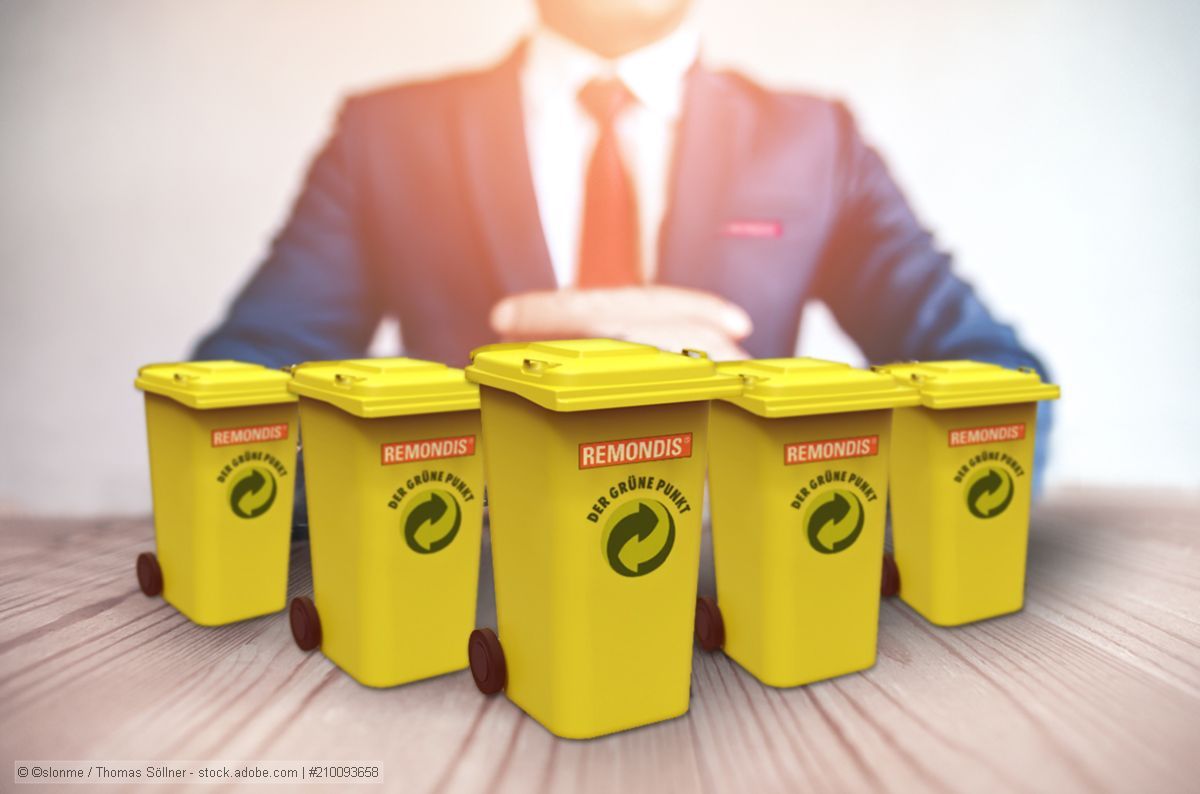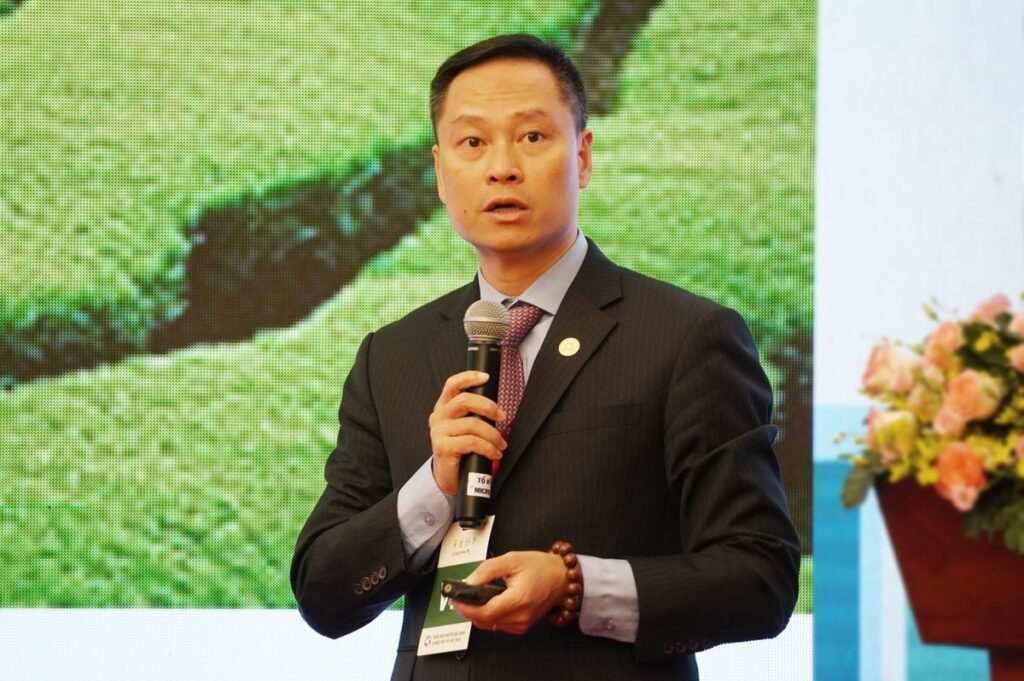
Challenges in Recycling and Sustainable Solutions
The packaging industry plays a vital role in modern life, protecting products, ensuring safety, and delivering convenience to consumers. However, as environmental awareness grows, the industry faces increasing pressure to adopt more sustainable practices. One of the most pressing issues is recycling in the packaging industry. From material complexity to inadequate infrastructure, recycling challenges are pushing businesses, governments, and consumers to rethink the future of packaging.

Mr. Nguyễn Gia Huy Chương, Chief Executive Officer of Packaging Recycling Organization Vietnam (PRO Vietnam), speaks at the Green Transition Forum and Recycling Day 2025. Photo: Nguyễn Thủy.
1. Why Recycling in the Packaging Industry Matters
Recycling packaging waste is essential to reduce landfill overflow, conserve natural resources, and minimize environmental impact. According to global estimates, over 300 million tons of plastic waste are produced annually, much of it from packaging. Unfortunately, only a small percentage is effectively recycled.
Recycling helps:
-
Lower greenhouse gas emissions
-
Reduce reliance on virgin materials
-
Support a circular economy
-
Cut production and disposal costs in the long term
However, achieving efficient recycling is not as straightforward as it seems.
2. Major Challenges in Packaging Recycling
2.1. Multi-material Packaging
Many modern packages are made from a combination of materials (plastic, aluminum, paper, etc.) that are difficult to separate during recycling. For example, juice cartons often contain layers of plastic, paper, and foil—making them non-recyclable in standard facilities.
2.2. Lack of Standardization
With no global standard on packaging types and labeling, both manufacturers and consumers are often confused about what can be recycled. This inconsistency leads to contamination and reduces the efficiency of recycling systems.
2.3. Limited Recycling Infrastructure
In many countries, especially developing ones, the infrastructure for sorting, collecting, and processing recyclable materials is outdated or lacking altogether. This bottleneck severely limits how much packaging waste can be processed effectively.
2.4. Consumer Awareness and Behavior
Even when recyclable packaging is used, it often ends up in the trash due to improper disposal. Recycling in the packaging industry depends heavily on consumer participation, which is still low due to lack of education and motivation.

Recycling in the packaging industry depends heavily on consumer participation, which is still low due to lack of education and motivation.
3. Sustainable Innovations in Packaging
Despite these challenges, many companies and organizations are stepping up with innovative solutions:
3.1. Mono-material Packaging
Shifting to single-material packaging (e.g., 100% PET or paper) makes recycling easier and more cost-effective. Brands like Unilever and Nestlé are adopting such models to improve recyclability.
3.2. Biodegradable and Compostable Materials
Materials like PLA (polylactic acid), made from renewable sources like corn starch, offer compostable alternatives to traditional plastics. However, they still require industrial composting facilities to degrade properly.
3.3. Reusable Packaging Models
Companies are exploring refill stations and reusable packaging systems that reduce single-use waste altogether. These models promote a zero-waste lifestyle and strengthen brand sustainability commitments.
3.4. Smart Labels and AI Sorting
Technology is helping to improve recycling rates. Smart labels using QR codes or near-field communication (NFC) can guide consumers on how to dispose of packaging properly. AI-powered sorting facilities also increase the efficiency of separating recyclables.
4. How the Packaging Industry Can Lead Change
To overcome recycling challenges, collaboration is key. The packaging industry must:
-
Invest in eco-design and recyclable materials
-
Partner with governments for better waste management systems
-
Educate consumers about proper disposal
-
Support global standards for recyclability
Sustainability is no longer a trend—it’s a necessity. Brands that lead in sustainable packaging and recycling will not only future-proof their business but also win the trust and loyalty of increasingly eco-conscious consumers.
The packaging industry stands at a critical crossroads. While recycling remains a significant challenge, it also presents an opportunity for innovation and leadership. By embracing sustainable design, improving infrastructure, and fostering global cooperation, the industry can pave the way toward a more circular and responsible future.
Operating under the motto of “Pioneering Quality,” Hoang Vuong consistently aims for sustainable and environmentally friendly packaging solutions. We proudly hold the following certifications: FSC Certification, GMI Certification, G7 Certification, ISO 9001:2015
With over 15 years of experience in the paper packaging industry and a solid brand reputation, Hoang Vuong is a leading private paper packaging enterprise in Vietnam, partnering with numerous major brands locally and internationally. We accompany your company on the journey of innovation, seeking differentiation through continuous improvement. Your success is both an achievement and motivation for us to continue innovating and maintaining professionalism.
- Address: 10/6C Street 10, Binh Hung Hoa A Ward, Binh Tan District, Ho Chi Minh City
- Mobile: 0908.863.965 (Mr. Le Hong Son)
- Phone: 028.62696129 – 028.22481926
- FAX: 08.62696032
- E-mail: havupackage@gmail.com
- Website: www.baobigiay.vn – www.hopcungcaocap.vn
- Fanpage: Hoang Vuong Paper Packaging Company Limited.

